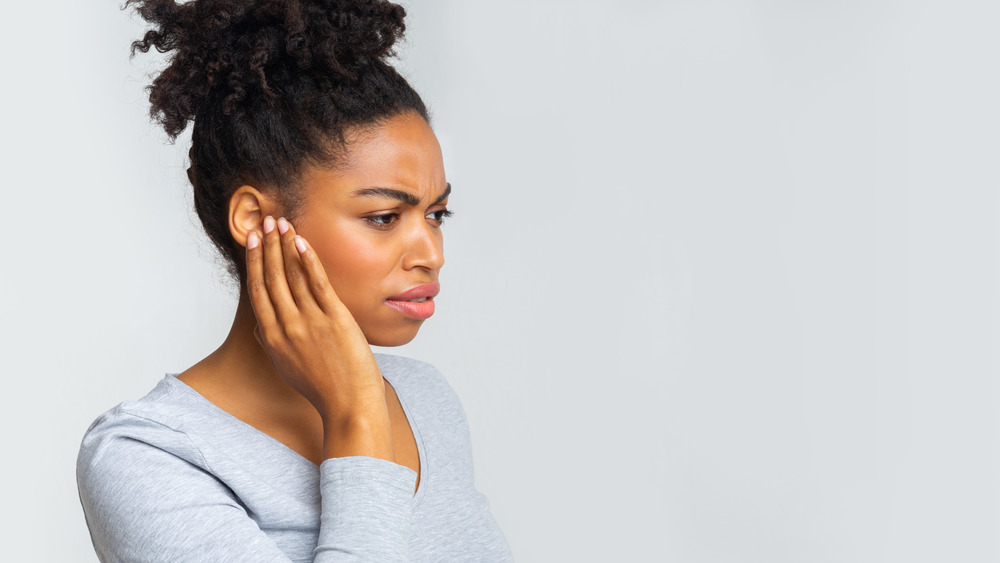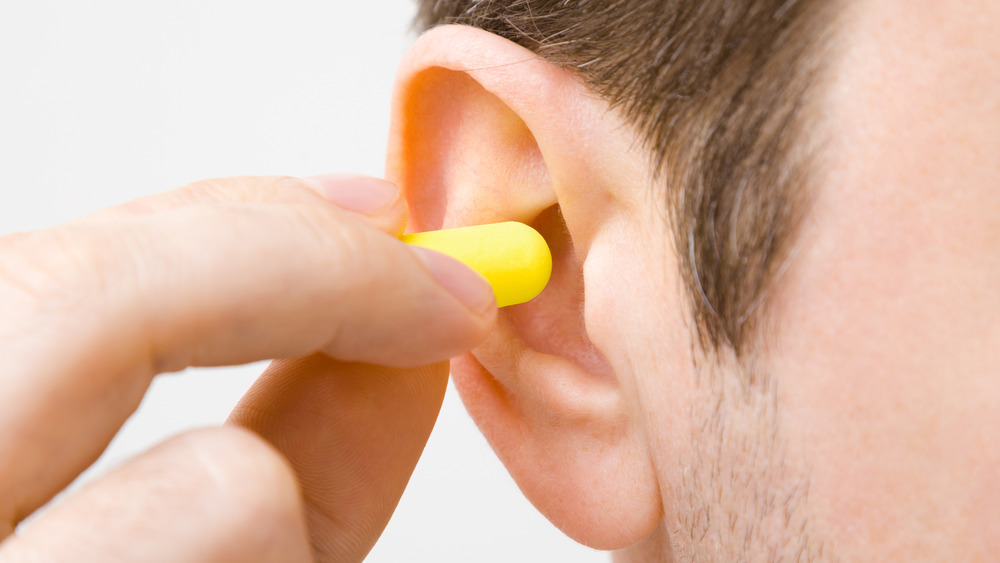How Loud Noises Really Do Damage Your Hearing
Most of us probably associate hearing damage and loss with older people. We may have a grandparent who has a hard time understanding us on the phone or even wears a hearing aid. While you may think you have plenty of time before you need to worry about losing your hearing, irreversible damage can happen at any age.
One of the first noises we hear is the sound of a heartbeat before we are even born. From the time we are very young, we hear noises all around us that give us clues and information about what the world around us is like. Our ears have three distinct areas, but the inner ear is where sounds go to be transmitted to the brain (via CDC). The cochlea is a tiny part in the inner ear that's shaped like a snail and filled with fluid. As your ear takes in sounds, the vibrations move the fluid around in waves. Small hair cells in the fluid move and bend with the motion of the waves. The hair cells turn the waves into electrical signals to send to your brain, which your brain then translates into a sound.
Protect yourself from hearing damage
Many noises are within a safe range for our ears. But extremely loud noises, or even loud noises that you're exposed to over a long period of time, can permanently bend and damage or even kill the hair cells in your cochlea. When that happens, you have fewer receptors to send electrical signals to your brain and you can no longer hear as well. Noise-induced hearing loss can happen gradually over time or can happen all at once as the result of a traumatic event like an explosion or gunshot (via NIH).
Protecting yourself from noise-induced hearing loss means knowing which sounds are dangerous. Anything above 85 decibels, like loud movies, motorcycles, lawnmowers, headphones at maximum volume, and concerts, can cause permanent hearing damage. If possible, avoid these loud noises or wear ear protection if you must be exposed to them. Taking steps now to protect your ears can help you avoid irreversible harm to your hearing.

